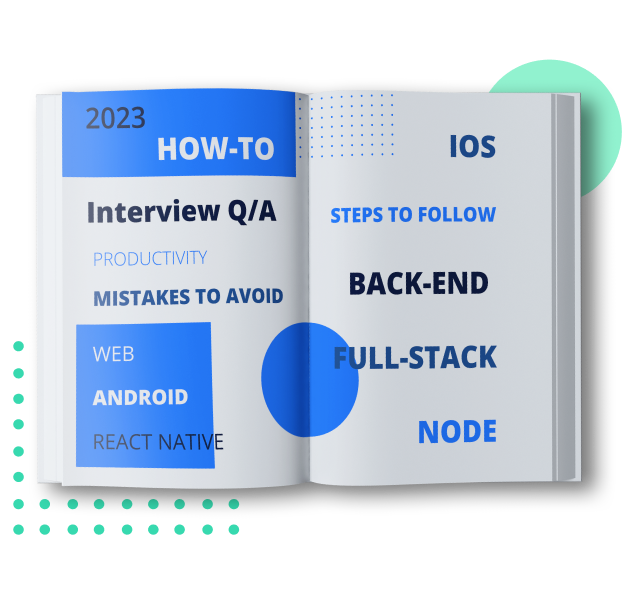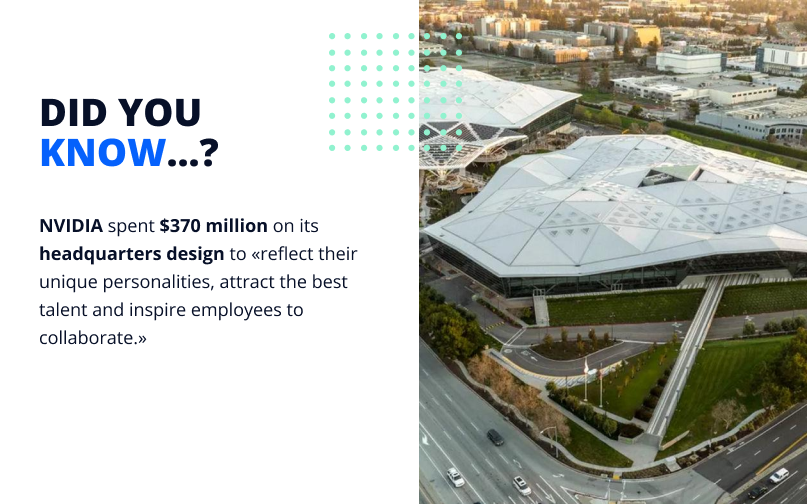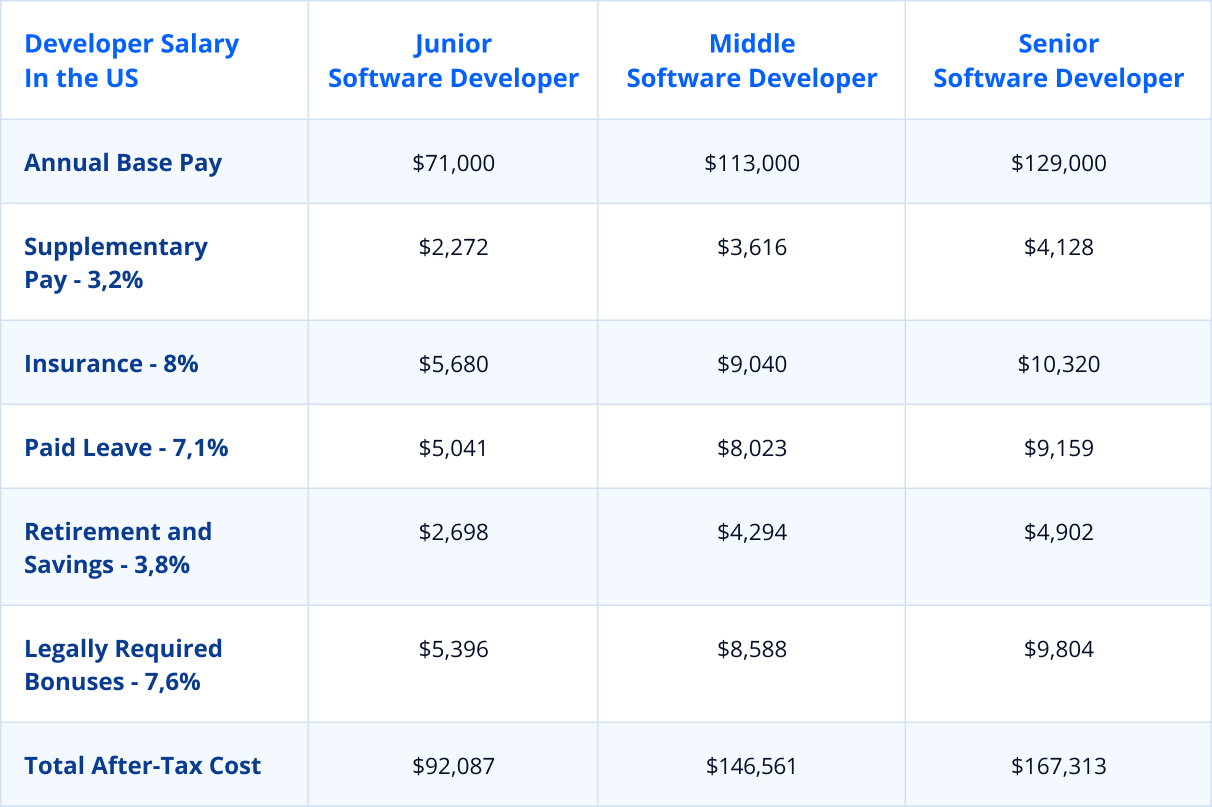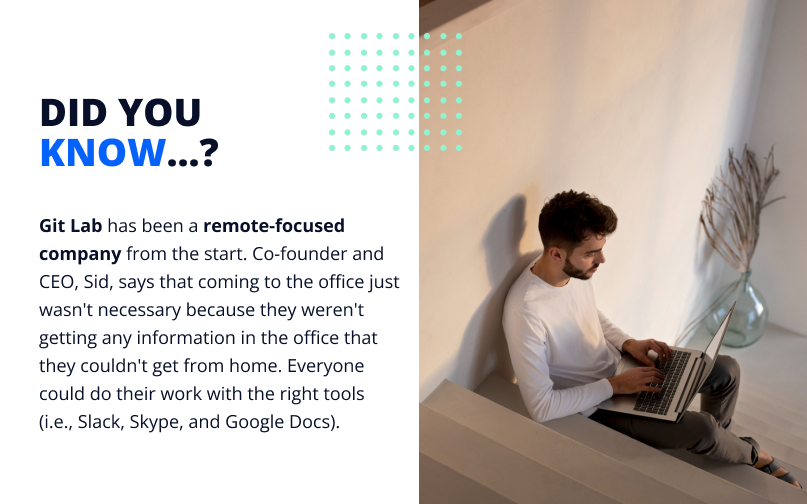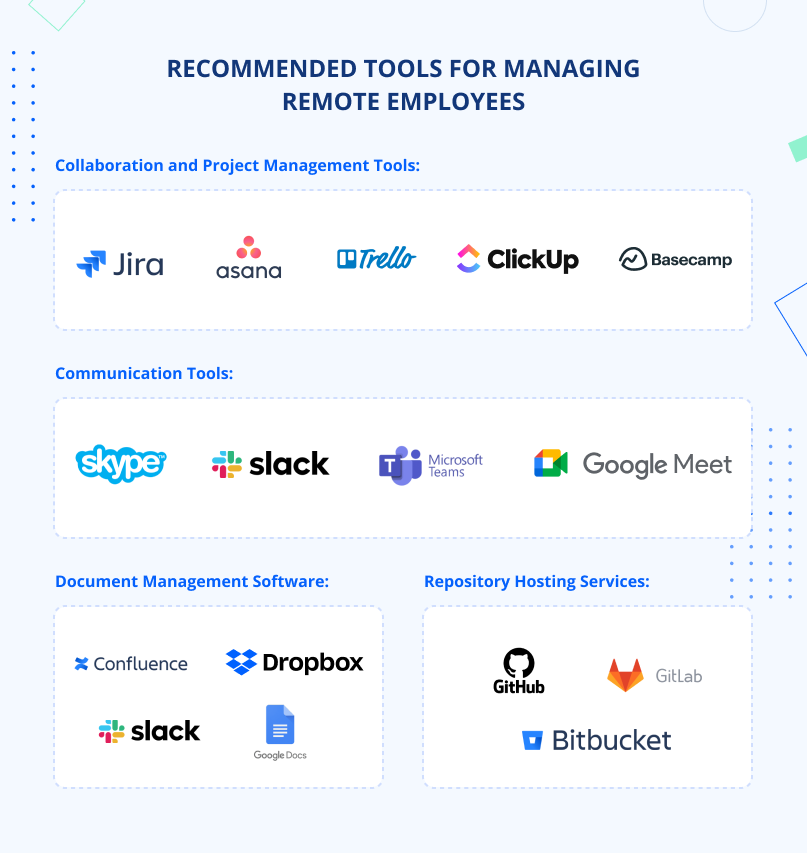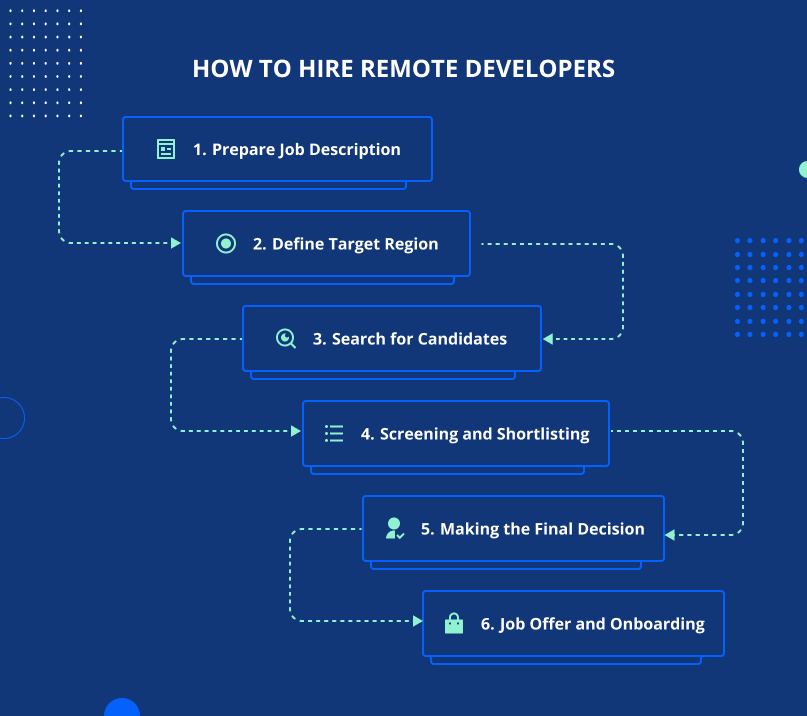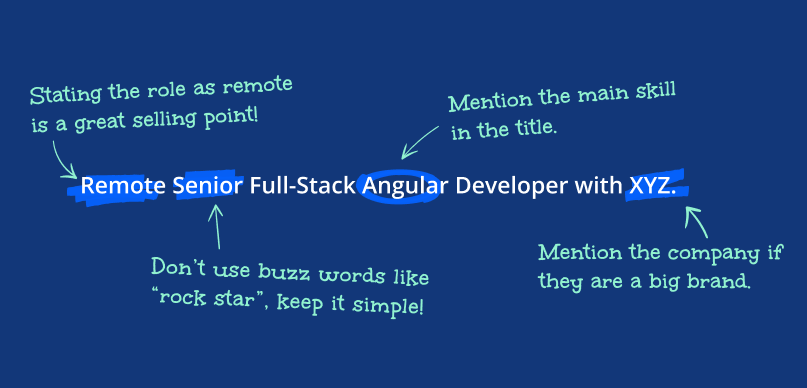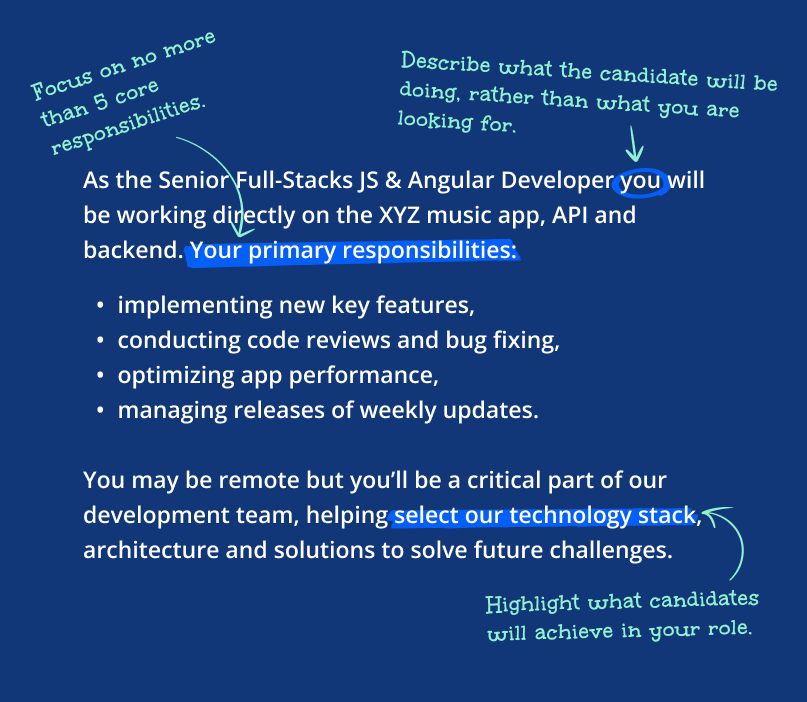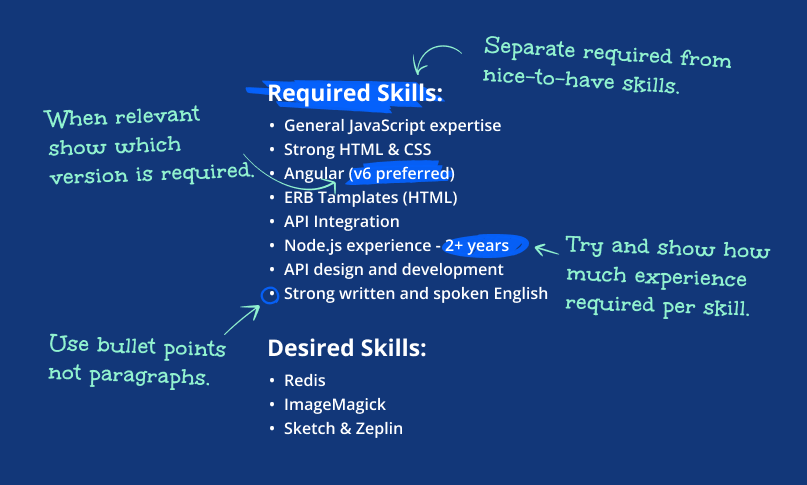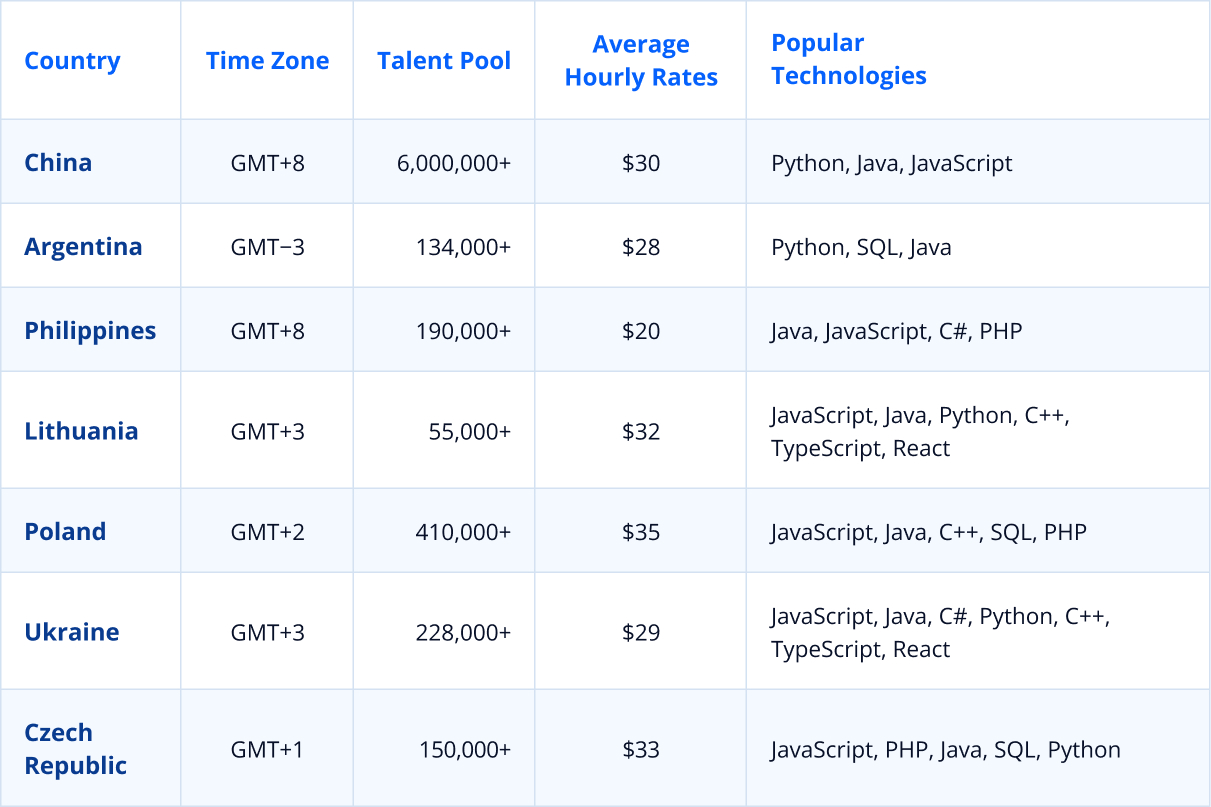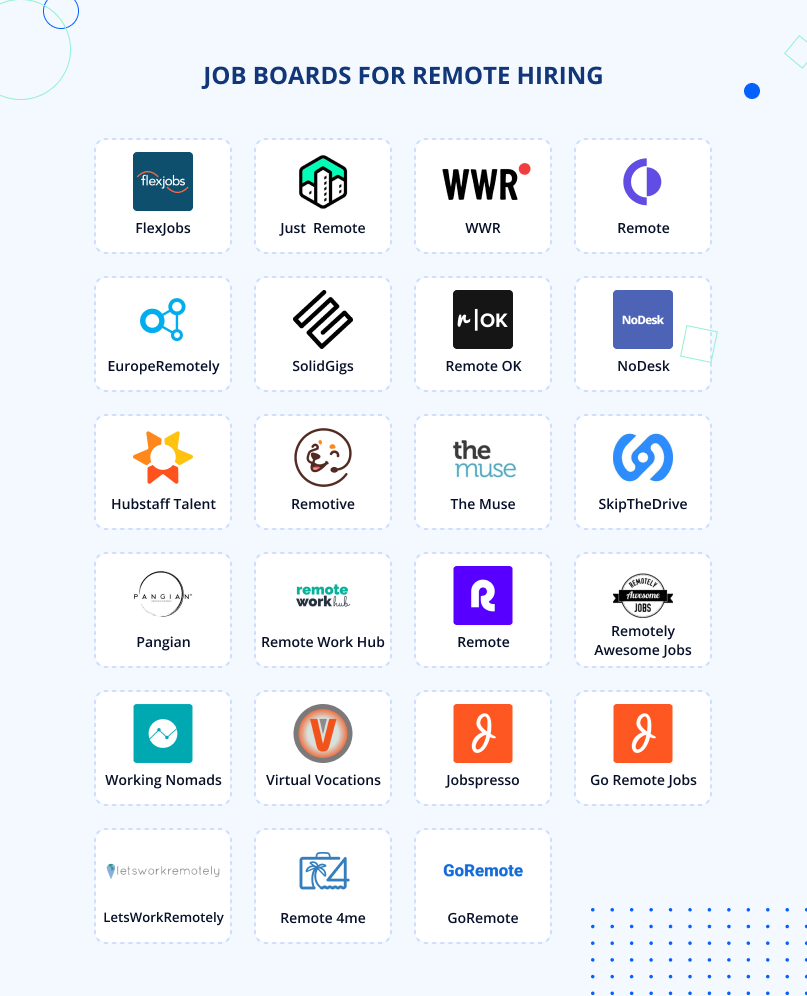Whether you’re running a startup or an established business, a team of talented developers is a foundation for success.
Remote hiring has become increasingly popular in recent years, allowing companies to tap into talent from anywhere in the world without the constraints of physical location. This shift has been driven by the flexibility and cost-effectiveness that remote work offers.
However, hiring remote developers presents its own set of challenges, particularly for companies new to remote employment. Finding qualified candidates with the right skills and attitude can be daunting, especially when conducting interviews and assessments remotely.
This article is a helping hand for CTOs, resource managers, and entrepreneurs starting their journey to remote hiring. We’ll guide you through how to hire remote developers step by step, including challenges to consider, skills to look for, and online resources to find the best remote talent.
- 1. Why Should You Hire Remote Developers
- 2. Principal Challenges to Hire Remote Developers
- 3. Factors to Consider Before Hiring Remote Developers
- 4. A Step-By-Step Guide to Hiring Remote Developers
- 5. Top Places to Hire Remote Developers
- 6. Hiring Dedicated and Freelance Remote Developers
- Why Choose JayDevs?
Why Should You Hire Remote Developers?
The core business advantages of remote teams are already well-known among tech and product companies. One of the core ones is cost-effectiveness. However, the hiring process should be based on many factors, not just cost.
Benefits for Employers
1. Reduction of Operational Expenses. Remote hiring means you don’t have to invest company funds in comfortable workplaces and technical infrastructure to attract (or retain) talent. By eliminating office space, equipment, and other amenities, companies can save up to $11,000 a year for each remote worker.
You save money, while offsite specialists choose their working environment and technical infrastructure, so it’s a win-win situation.
2. Affordable Developer Rates. You can find engineers with quite low hourly rates in countries with a cheaper cost of living. Additionally, partnering with a dedicated resources company removes additional expenses like pension contributions, sick days, and vacation coverage.
In contrast, when hiring an in-house specialist or retraining an existing one, the overall cost skyrockets. Employers must pay additional costs, not to mention the time lost if the employee doesn’t meet expectations:
Thus, you don’t have to compromise on quality, time, or budget but seek distant talents who meet all three requirements instead.
3. Access to a Global Talent Pool. Experienced developers are in high demand, especially when the project requires niche technology or unique expertise (such as practical experience in machine learning for finance).
Distant hiring greatly expands the talent pool. It enables businesses to find developers skilled in required technologies and domains more quickly and efficiently.
4. Flexibility. By partnering with reliable outsourcing vendors, companies gain the ability to scale their development teams on demand. This means you can quickly hire additional resources or even set up an entire team to meet tight deadlines or address increased customer needs.
This flexibility empowers companies to adapt swiftly when the business needs change fast.
5. Increased Productivity and Efficiency. Did you know that working from home could make you 20% happier? Yep, that’s what a recent study reported in Forbes found! And it’s not just about feeling good while you work in your pajamas – there’s a solid link between work happiness and overall happiness.
Another study discovered that even just having the option to work remotely once in a while can bump up your happiness and productivity by a whopping 24%.
Now, you might think happiness at work is just a fluffy concept with no real impact on business success. Think again! Business psychologist Dr. Camille Preston says that when employees are happy, everyone wins. They work harder, they sell more – it’s a win-win situation.
And it’s not just her saying it. According to Sean Achor, the brains behind “The Happiness Advantage,” happiness can boost sales by 37%, ramp up productivity by 31%, and even improve task accuracy by 19%. So, it’s safe to say that happy employees equal happy bottom lines!
Benefits for Employees
1. Better Work-life Balance. By eliminating the need to spend time on the road and traffic, as well as a strict schedule, developers can feel more relaxed, which leads to a more efficient work-life balance.
2. Time Efficiency. By working remotely, developers can better manage their time and organize their daily workflow more flexibly.
3. Productivity. According to a Statista survey, about 60% of developers report that remote work has positively impacted their productivity.
Principal Challenges to Hire Remote Developers
Although hiring remotely has a wide range of benefits, you may face some issues as well. Let’s consider the most significant ones.
Creating and Managing Job Postings
To hire a qualified remote outsource developer, it’s important to craft precise job descriptions and choose the right job boards. To reach a wider audience, you’ll need to post on multiple platforms, regularly manage postings, and revise responses. This process can be quite time-consuming, but getting it right is essential for attracting the best talent.
Recognizing Quality
After posting your requirements for remote developers, you’re likely to receive a lot of requests and get overwhelmed by the options available. Therefore, selecting quality developers can be a tedious task.
Before signing a contract with a developer or remote service company, carefully evaluate and test the candidate’s coding abilities and general technical knowledge. This will help you avoid the potential problem of hiring an incompetent developer. Further in our guide, we’ll comprehensively describe how to hire the best remote software developers and what to look for.
Language Barriers
Misunderstandings can arise when working remotely with professionals who are not native English speakers. This is especially evident for remote teams spread globally. Therefore, it is critical to evaluate communication skills from the very start.
Cost Overruns
If you hire inexperienced remote programmers at lower rates, you may end up spending more money due to errors, delays, and other issues that occur during the development process. You can avoid overspending by working with a skilled IT staff augmentation and tech recruiting company like JayDevs.
Factors to Consider Before Hiring Remote Developers
The approach to hiring remote software developers can vary based on the organization. However, there are a few common factors you should consider. You may only need one developer with a certain skill set or an entire team of developers to implement your project. In both cases, it’s wise to keep the following guidelines in mind:
Clearly Understand Your Development Needs
You can’t effectively hire remote software engineers if you don’t know precisely what you want from your project. Here’s how to ensure you’re on the right track:
- Determine the key technologies you need for your project to understand the particular kind of expertise you need. Additionally, decide a time frame for your project completion.
- Estimate how many remote developers (i.e., junior, middle, senior) you’ll need to effectively execute your project within the desired timeline. Consider factors like the complexity of the project and the workload distribution among team members.
- Clearly outline your expectations for remote work, including communication channels, availability, and time zone compatibility. This ensures smooth collaboration and avoids misunderstandings down the line.
- Utilize online platforms and talent tech recruiting services specialized in remote hiring to reach a wider pool of talent. Be sure to thoroughly review candidates’ profiles, portfolios, and references to gauge their suitability for your project.
- When interviewing remote candidates, focus not only on their technical skills but also their communication abilities and remote work experience. Use video calls or virtual meetings to get a sense of their professionalism and collaboration style.
- What is your maximum budget? What is your payment model?
By following these steps, you’ll be better equipped to hire remote developers who are not only skilled but also the right fit for your project and team dynamics.
Define Your Budget in Advance
You probably have, at least, a rough estimate regarding your budget. However, keep in mind that you’ll receive different offers depending on where you’re searching for talent.
The first thing to know is that the price does not always indicate the developer’s level. Instead, it often reflects the economic situation of the region. For instance, most Americans spend up to $100 per day, while in India, one spends daily up to $12.
The key to finding the right fit lies somewhere in the middle. Opting for either the most expensive developers or those “coding for food” doesn’t guarantee the best results. The golden to find a balance where you can secure good candidates who offer competitive rates.
The trend of outsourcing developers from India has recently shifted. Companies from the United States have found more promising markets like Central and Eastern Europe. In these regions, developers speak English well, have proven technical expertise, and offer reasonable hourly rates, typically around $35-45/hour.
Establish Communication Channel
The biggest challenge in remote development is communication and control.
Collaborating on a project with different time zones and work schedules can be quite challenging. To avoid potential issues, outline project management and communication tools. By using them, you’ll ensure work transparency even when you don’t have direct control over remote development teams.
Here is a list of possible tools that can help efficiently manage your remote team, thereby achieving optimal results:
- Communication tools: Skype, Slack, Microsoft Teams.
- Collaboration tools: Jira, Asana, Trello, Basecamp.
- File storage and sharing tools: Confluence, Dropbox.
Who Would Manage Remote Developers?
Before defining how to hire remote developers, you should first define someone who will manage them. Typically, companies have a product manager, technical project manager, or senior engineer who handles this task.
If you are not familiar with IT or don’t have such people in-house, it’s better to hire remote project managers as well. These specialists can effectively oversee and coordinate the work, ensuring a smooth collaboration.
How to Hire Remote Developers: a Step-By-Step Guide
#1 Write a Job Description for Remote Developers
Crafting a compelling job posting is essential to attract the right talent for your team. Your writing style should align with your company’s culture and accurately represent what you’re looking for in potential candidates.
Three core elements to focus on are the job title, role description, and responsibilities.
Job Title
Just like when you open your mailbox and quickly scan through message topics, job seekers pay the utmost attention to job titles.
Professional titles like Python Developer, Full-Stack Angular Developer, or DevOps Engineer can be used to capture their interest.
Job Description
The developer role should be explicitly outlined in this section. While adding personality and humor can be great, it’s best to avoid them here. Instead, focus on providing key points that will attract potential candidates.
Key points to include:
- Your Company/Project Name,
- Experience level – specifying seniority is helpful for screening qualified candidates,
- Role – e.g., Full-Stack Angular Developer,
- Core Tech Skills – e.g., Android and React.
Responsibilities and Skills
This section provides an overview of the day-to-day duties and essential skills for the remote developer position.
Describe what the developer will do — include some action verbs here, as they make the sentences more dynamic and engaging.
Rather than lengthy paragraphs, opt for a concise list of the five most significant responsibilities. Use action verbs to make the sentences dynamic; you can find ones in the Merriam-Webster dictionary.
Additionally, consider making a list of must-have and desired skills for the role to ensure you don’t limit potential candidates.
#2 Define Target Region
When learning how to hire a remote developer without overspending, one essential aspect is determining the regions that align with your budget.
Beyond cost, the price-quality ratio is crucial in hiring experienced remote workers. Many companies are now outsourcing their projects to Asia, Latin America, and Central and Eastern Europe. Some of the most popular destinations include:
- China
- Argentina
- Philippines
- Lithuania,
- Poland,
- Czech Republic.
To make an informed decision, compare the differences in time zones, the available pool of developers, and the rates offered in these regions:
#3 Search for Candidates
Once you have crafted a comprehensive job description that outlines all your requirements, it’s time to consider how to effectively distribute it to reach potential candidates.
You have several options for hiring remote developers, such as:
- Leverage the power of social media networks like LinkedIn, Twitter, and Facebook to connect with potential candidates. Join relevant groups and communities, share job postings, and actively engage with professionals in your industry to expand your reach.
- Post your job openings on remote job portals and freelancing platforms such as Upwork, Freelancer, and Remote.co. These platforms attract a diverse pool of talented developers actively seeking remote opportunities.
- Consider collaborating with specialized talent tech recruiting services and IT staff augmentation companies like JayDevs. This company has extensive networks and expertise in sourcing, screening, and matching remote developers to fit your project requirements and culture.
#4 Start Screening the Candidates
Once you’ve received the CVs and selected several top candidates for remote work, it’s time to assess their skills through a comprehensive interview process.
Plan a multiple-step interview process to assess the communicative and technical skills of candidates.
We recommend starting the interview process with an initial screening via video call. Popular video interview programs include Skype, Zoom, and Google Meet. You will be able to get a “feel” for the applicant and determine if they are a good fit for you.
Soft Skills Interview
The soft skills interview focuses on the candidate’s attitude, personality, and value system.
It mainly involves asking behavioral questions to understand if the candidate possesses the essential qualities for remote developers, such as:
- Flexibility,
- Self-motivation,
- Good communication skills,
- Good time management,
- Team collaboration,
- Work-life balance.
Technical Interview
This step involves evaluating the applicant’s technical skills, also known as hard skills.
During the technical interview, inquire about the candidate’s past projects, the roles they played, the challenges they faced and solved, and the technical solutions they implemented.
Technical interviews often include live programming sessions to assess the practical knowledge of remote developers.
Pair Programming Session
To observe candidates in action, a technical manager (such as a lead developer from your in-house team) creates a test programming project and collaborates with the candidate. Popular tools like Slack and GitHub are commonly used for these programming sessions.
Through pair programming, you can effectively evaluate the candidate’s skills and proficiency with different tools.
Overall, by following an in-depth screening process, you can hire a remote outsource developer who has both soft skills and technical expertise fit for your team.
#5 Making the Final Decision: How to Hire Best-Fit Remote Developers
It is important to assess how a person deals with assigned tasks, including how they accept the task, report intermediate results and issues, manage timelines, and present the final results.
A test task is a great example of goal setting, which can clearly unveil these traits.
Task Acceptance
As you search for the perfect candidate, pay attention to how a developer comprehends the given tasks.
AA red flag is when a specialist doesn’t ask questions during the meeting but replies with “I don’t understand” half an hour later. If a developer doesn’t seek additional clarifications during goal-setting and delivers poor results, it might indicate a lack of experience, leading to potential issues with their work.
A highly positive sign is when a candidate takes time to understand the task, asks thoughtful questions, and might even propose alternative approaches to completing the task.
An ideal situation is when a developer confidently says “everything is clear” and provides results promptly, though such cases might be rare.
Informing About Progress and Obstacles
It is essential to analyze how remote software developers respond to difficulties while working on the assigned task.
Three reactions to be cautious about are:
- An engineer stops working on the task, waiting for the next meeting to address the issue and delaying the project’s timeline.
- An engineer working outside of the development team attempts to resolve issues independently, veering away from the initial assignment. As a result, a lot of time is wasted, and everything should be redone.
- An engineer bombards the team with numerous questions. Objectively, it is not terrible, but it may potentially lead to micromanagement and inefficiencies.
In an ideal scenario, the developer should forecast potential obstacles and communicate them beforehand without making the working process a nightmare.
Reporting the Results Obtained
PayPay attention to how a developer delivers their work results:
- A specialist completes the task but remains silent until asked for an update.
- A specialist completes and delivers the task but reveals the issues only after you start checking it.
- A specialist completes the task and schedules a short call to demonstrate the results, highlighting any minor issues.
The third option is preferable as it shows proactivity and effective communication.
Overall, the key point of such test tasks is more about analyzing how the candidate collaborates with a team rather than about the code quality.
Important Note: Don’t mix a test task and wish to get work for free. Test assignments should aim to reveal certain features of a developer, nothing more.
Other Factors Displaying a Good Remote Developer
1. Experience level
When considering remote developers, their experience level plays a critical role. Middle specialists and those with lower levels of seniority may face challenges in remote work. Experience significantly differentiates a middle developer from a senior developer.
Experience gained by senior developers helps them address typical issues much faster. In contrast, mid-level specialists might require more time to handle the same tasks. Middle developers may require assistance, and providing remote help can be more complicated compared to in-house support.
Focus not just on qualifications but on experience as well. Namely, production experience helps carry out certain tasks with minimal effort — and the right thing is to flag this.
2. Performance
Performance defines how well a specialist meets the planned production estimates. If an engineer implements features 30-50% faster compared to an average senior specialist, this is considered good performance. It was an amazing performance, in fact.
Remote collaboration is closely tied to performance. For some, remote work leads to increased productivity, while for others, it might have the opposite effect.
Some developers thrive in remote settings as they can fully focus on their tasks, avoiding time wasted on preparing, commuting, or engaging in casual office chats. This focus allows them to show enhanced efficiency.
Conversely, the second category includes specialists who struggle with time management and have numerous daily distractions. Their task performance requires more attention and control. However, it is quite challenging to identify these issues during interviews.
Screening and monitoring tools that track activities and time usage might not solve all problems. Some remote developers are comfortable working under such supervision, while others prefer a more flexible schedule. As a decision maker, learn to read between the lines and give the candidate a chance to reflect on what they consider “the good and the evil.” If an engineer emphasizes “complete freedom only,” you’d better be cautious about potential performance-critical issues.
3. Habits
According to Martin Fowler, a software development guru, there are no good or bad engineers, only those with bad habits.
This means that a developer who clearly understands tasks, communicates effectively with the team and manager, and follows best practices is more likely to deliver high-quality work with minimal bugs. So, how do you hire such remote developers? Pay attention to all the intricacies mentioned above.
#6 Job Offer and Onboarding
- Discuss the Contract: Begin by discussing the contract with the appropriate executives and your legal department. If you are hiring remote developers directly from a dedicated company, you can sign the contract they have in place.
- Sign Non-Disclosure Agreement (NDA): To protect your project from theft, misuse, or unauthorized publicity, ensure that the developer signs an NDA before starting work.
- Establish Effective Communication Channels: Decide on the communication platform to be used. It could be Slack, Microsoft Teams, or any other options adopted in your company.
- Review Meeting Schedule and Deadlines: Agree upon the meetings and core milestones to ensure everyone is on the same page.
- Assign In-House Developers as a Point of Contact: Define a person (if available) who can assist with any pending questions and provide necessary guidance to the remote developer.
- Ensure a Smooth Onboarding Process: Make sure that a new team member is well-informed about the project, its goals, and the team dynamics. Provide them with all necessary resources and information to help them integrate seamlessly.
How to Hire Remote Developers: Top Places to Seek
IT Staff Augmentation or Dedicated Companies
Engaging with IT staff augmentation or dedicated companies presents an excellent opportunity to secure top-tier remote developers tailored to your project requirements and business objectives. By partnering with these firms, you streamline the hiring process: outline your project specifics and the positions to be filled, and they handle the rest, drawing from their extensive talent pool.
When it comes to sourcing additional talent for ongoing or upcoming projects, JayDevs is the ideal partner. We specialize in connecting businesses with skilled remote developers perfectly suited to their needs. Whether you’re expanding your team or launching new initiatives, we’ve got you covered.

Third-Party Platforms
Third-party platforms can help you receive unbiased reviews and make informed decisions while choosing an IT provider. Here are some of them.
Clutch
Clutch is a listing platform for IT and business service providers. There you can find IT vendors and check information such as hourly prices, service focus, and reviews from real customers. Clutch has more than 280,000 IT agencies offering custom development services and resources on-demand.
GoodFirms
GoodFirms focuses on technology companies instead of business-to-business services. There, you can find over 60,000 IT companies offering a wide range of services and ready software solutions.
In addition, GoodFirms has an active community where you can get opinions from other industry experts.
Social Media
You can search for skilled remote software developers on social networks such as LinkedIn, Facebook, or even Twitter. There are many job-related groups where you can post a job, and interested developers can contact you.
Job Boards
If you have a job opening and want to avoid paying an agency for their services, job boards can be a cost-effective option. Some of the most popular job boards to hire software developers include:
Freelancing Platforms
Freelancers are often associated with short-term project work rather than long-term employment. If you have a lot of small tasks to be done, you can opt for freelancing platforms such as Toptal, Upwork, or Guru.
Toptal
Toptal has a strict vetting system that ensures that only skilled remote software developers join their community. When you hire remote programmers from Toptal, you are guaranteed to get qualified candidates, but be prepared to pay a premium price for the service.
UpWork
Upwork is the leading marketplace for freelancers and offers a wide range of categories, including engineers. You can post a job on UpWork, which is free, or you can browse through the profiles. The platform doesn’t vet specialists like Toptal, so you may have to weed through many proposals to find the right fit.
Guru
Although the talent pool on Guru is smaller than that of Upwork, you will likely find good programmers and app developers across various regions. The platform allows you to specify your search based on specialization, location, ratings, and prices.
Ultimately, it does not matter which freelancing platform you choose; they all work pretty much the same way. You post an offer, and people compete for it. So you can spend a lot of time choosing the right candidate.
Keep in mind that freelancers often compete on price. So you can get ridiculously cheap offers to code, such as $5/hour. These are people who usually take on any work and are not experts.
How to Hire Remote Software Developers: Freelance vs Dedicated
The difference between remote developers and freelancers may be much more significant than you think. Whether you should hire a freelancer or a remote developer depends on the specific needs of your project.
When to Hire a Freelance Developer?
Consider hiring freelancers in the following scenarios:
- You have a small budget, a small or short-term project with few technical requirements. Freelancers usually work on small and less complicated tasks to be able to work on several projects.
- You urgently need software developers. Finding freelance engineers takes less time and resources. You are able to post online job ads on several international online platforms, which will be available to suitable candidates worldwide. However, you should be very careful about the selection criteria.
- There is no risk of leaking important and confidential information.
When to Hire a Dedicated Remote Developer?
Consider hiring remote developers in the following cases:
- You have a long-term project or even a bunch of projects, and the existing team is overloaded.
- You are highly concerned about the quality of your developers’ services.
- You don’t want full control over the software development process and need third-party help.
- You are worried about intellectual property (IP) rights and need a signed NDA.
- You are interested in hiring additional software developers, UI/UX designers, and other related IT specialists throughout the software development project. For example, when working with dedicated developers and designers, finding new talent and integrating them seamlessly into the current project is much easier.
- You need fast software implementation and support. Dedicated engineers understand the software lifecycle and its stages. With dedicated software engineers, it’s easier to determine what stage of the software development life cycle you’re at and where you’re headed. This automatically makes the entire software development, implementation, and support process easier and faster.
Why Choose JayDevs for Hiring Remote Developers?
Finding remote developers with the right skills and experience can be a daunting task. However, partnering with a reputable company that boasts a team of vetted engineers can streamline the process and ensure that you find the perfect match for your business needs.
That’s where JayDevs comes in. With our pool of proven remote engineers and a strong track record, we offer one of the most reliable solutions for hiring top-tier remote developers. Our engineers are ready to seamlessly integrate into your project, bringing their expertise to the table with minimal hassle.
So, how do you go about hiring a remote developer with JayDevs? It’s simple. Just reach out to us with details about your project requirements, and we’ll handle the rest.
